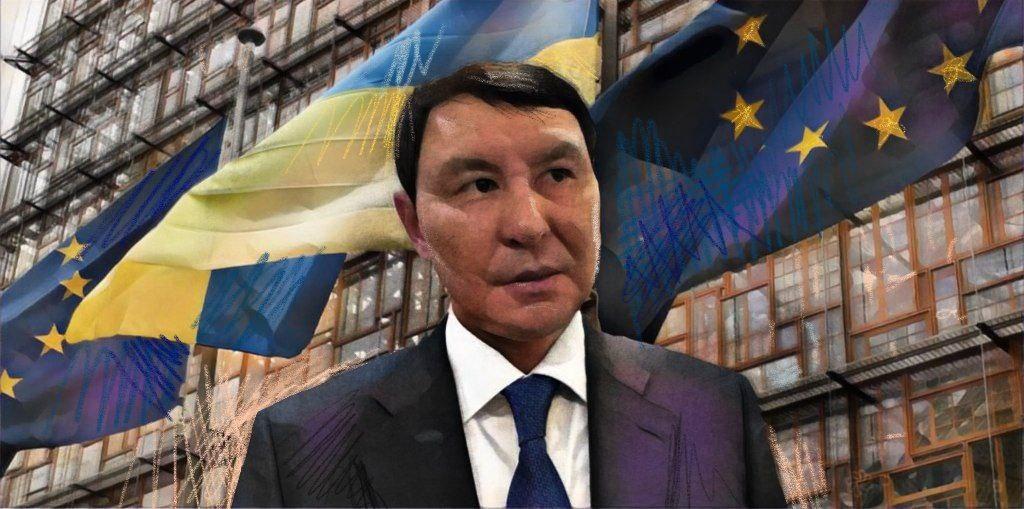Tomorrow will mark the two year anniversary of the start of Russia’s so-called special military operation in Ukraine. In that time, many people in Central Asia have begun to openly call this action an invasion and a war. This is a war between two countries that are close in many respects, two former republics from a large union that the nations of Central Asia were also part of. How and why has the attitude of Central Asians towards Russia and Ukraine changed in the last two years?
The attacks on Ukraine were felt immediately in Central Asia, from the first day when migrants suddenly started arriving from the north. These were mostly young people, sometimes in groups, and sometimes with their families. It quickly became clear that this exodus was comprised of people who did not want to fight, and there were many of them. Also from day one, even though there are many ethnic Russians living in Kazakhstan, the new migrants were noticeably different from the local Russian faces. Their behavior and mode of dress were not the same as those already residing in Tashkent, Bishkek or Almaty. From the very beginning, there were conflicts although mostly they amounted to little more than drunken brawls that were soon forgotten. In February 2022, the cost of residential rentals skyrocketed following the attack on Ukraine, but prices seem to have since stabilized.
Overall, though, most locals treated their new neighbors with understanding. Nobody wants war. Especially since, in the countries of this region, people still remember or at least heard stories about the evacuation of a large number of people from Russia and Ukraine during the Second World War. In those times, many children whose parents died during the occupation of western portions of the USSR by Germany found second families and second homes. Uzbeks, Tajiks, Kazakhs, Kyrgyz, Uyghurs, Tatars – many Central Asians who had the opportunity adopted children from war-torn republics of the Soviet Union.
Perhaps the most fundamental change is felt in the attitude of Central Asian people towards Russia as something immutable and monumental. Something previously unthinkable transpired: despite all its economic and political power, this huge northern neighbor could also be viewed as vulnerable. The fact that Ukraine is obviously not alone in its war against Russia does not change this perception.
In Central Asia, it is often said that in any negative situation, one must look for positive opportunities, and in a tangential way, the years of restrictions caused by the Covid-19 pandemic served as preparation for the trials brought by the war. A realization had come to pass that it was necessary to prepare oneself to rely solely on domestic resources.
The war further complicated a precarious situation as sanctions imposed on Russia also hit Central Asia. First, the financial system went into meltdown, then trade, and then the production sector, much of which was tied to the Russian economy. However, this situation forced Uzbekistan, Kazakhstan, Kyrgyzstan, Tajikistan and Turkmenistan to look for new approaches to economic development and find alternative ways to import and export. Geographically, these countries are remote from all sea trade routes, and from the southern side, they are protected – or rather isolated – by high mountain ranges.
Thus, Russia’s war, for all the disadvantages it brought and the havoc it wreaked, forced the nations of Central Asia to focus on diversifying their economies. It encouraged them to find new partners and move away from economic dependence on Russia. As for politics, the events of the last decade have confirmed the strategic fidelity of the so-called multi-vector foreign policy pursued by the countries of region, following the example of Kazakhstan. Adherence to the principle of a multi-polar world, or even a multi-polar region following Russia’s attack on Ukraine, is a reality that must be reckoned with. For all of its powerful posturing, Russia’s influence over the nations of Central Asia and other areas that the Kremlin often refers to as “near abroad” has waned dramatically. Vladimir Putin, meanwhile, is a deeply unpopular figure throughout the former Soviet Union.
Two years on from Russia’s invasion, broadly speaking, the nations of Central Asia still hold their resolute stance that the war needs to be halted. Today, the focus has shifted from assigning blame to preventing further loss of life. It has become less about who is in the right and more about ending the daily casualties. The most pressing need of the hour is to stop the conflict and pave the way for dialogue and resolution.









